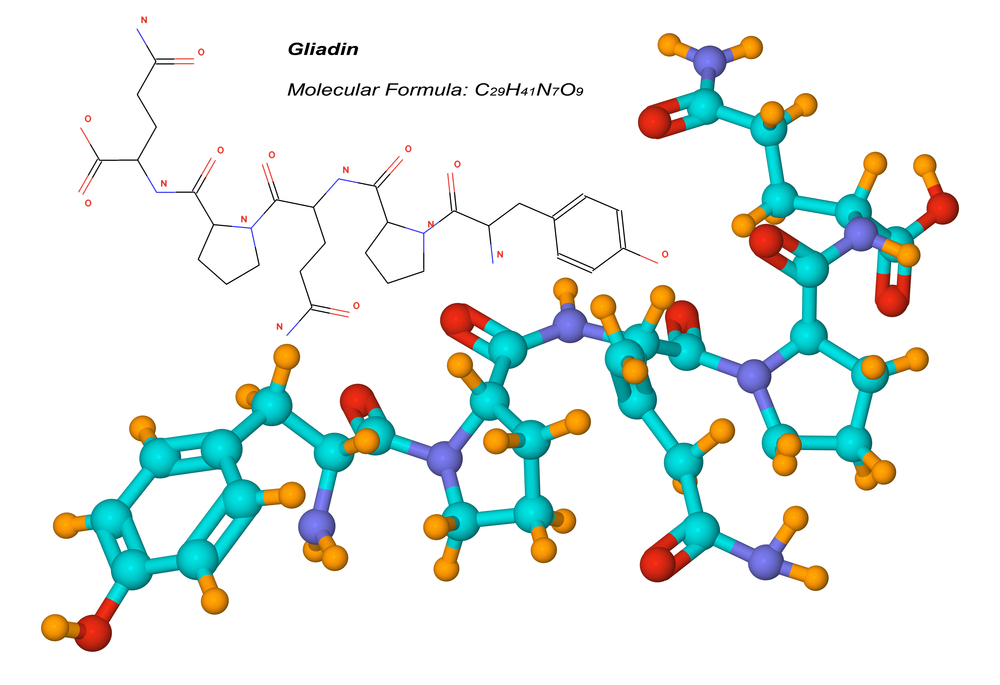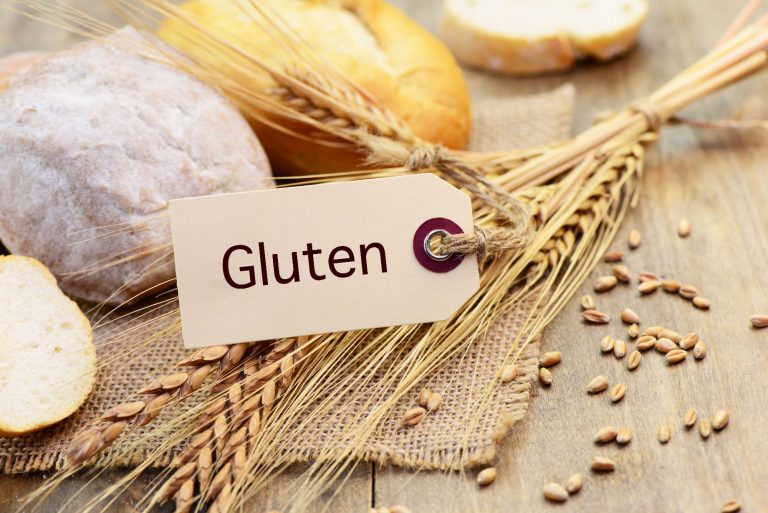Gluten, a word that won’t let some people sleep at night, and others will read all the available labels. Apparently causes problems with the stomach, lack of health and overweight. All over the world, people are going crazy over gluten-free products and avoiding wheat. But...g does gluten really hurt our health? Everything we have is also made gluten free; things such as beer or biscuits. Even products that never initially contained gluten are labelled as gluten free (for example, corn gluten – it never had gluten, but because of the fashion to exclude it from our diet, the manufacturers were sticking on labels with the right information). It’s impossible to hide that one thing is certain – people can make good business on gluten. But is gluten actually harmful?
What Gluten is actually?
But what is this gluten? In reality, gluten is just a mixture of vegetable proteins that can be found in grain (mainly in wheat and life).
Initially gluten was eliminated from diet only by people with celiac disease (which is directly linked to gluten sensitivity), but as a result of new research published a few years ago, eliminating gluten from the diet has become super trendy among all people who consider themselves healthy and fit.
Result? Almost everyone eliminates gluten, and many people do not even know why.

Is Gluten harmful?
According to a study conducted by Peter Gibson, an Australian gastroenterologist, gluten could have negative effects not only on people with celiac disease, but also on those who have not been diagnosed with it. The study spread across the network and world like fire, resulting in a great craze over gluten-free diet.
According to Gibson's research, gluten was supposed to cause even fatal symptoms such as fatigue, heaviness, indigestion, bloating, headache, joint pain, and muscle aches, even in healthy people. Sounds like something many of us have or had, right? Exactly. Hence it’s very easy to say that gluten is bad ... and that's it.
Gluten-free diet
No wonder there is consternation and confusion among people – to eat, or not to eat? Does it kill or doesn’t it kill? Does it destroy intestines, or not?
The greatest fitness stars have spoken of the gluten's dangers, reminiscent of television and the press. The shops began to stock on more and more gluten free products, marked with big inscriptions. Now, not only people with celiac are eating gluten free - almost everyone has tried to avoid them for fear of their health; without research, often one day drastically changing the diet.
Interesting facts about Gluten! We BET you didn't know about them!
The situation starts to get complicated when we read that Dr. Gibson repeated his research and found out he was wrong.
With the second study, Gibson tightened all the guidelines so as to exclude the effect of any other factors on the results. During the test, people claiming that gluten harms them only ate meals prepared by study organizers. Gluten was found in some dishes, but was administered so that neither the investigators nor the subjects were aware of it - in order to exclude any risk of transmitting information and disturbing the test results.
Studies have shown that if people were told that they ate gluten (even if they did not eat it), there were negative symptoms. On the other hand, sometimes the researchers ate huge amounts of gluten, but they were told it was gluten free - then the symptoms were gone. Researcher's proposal? Placebo.
Celiac disease is main reason of glutenophobia! Is actual gluten intolerance disease
I feel better without Gluten!
Many people negate this research, saying that without gluten they feel better. Yes of course! Gluten-free diets have made these people much more likely to eat more healthily. Often drastically reduce carbohydrates (because they turn away the wheat products they once ate), which reduces the caloric balance of the food they eat, and they eat more vegetables and unprocessed products. They often feel better because they have changed their diet to be healthier, not because they have put off gluten.
But…
Does this mean that a gluten free diet is one big stigma? No. This means that it is another ingredient to be observed in your diet. Research is not homogeneous, and people do not know what to think. Think about this carefully. I do not stand on any side of the barricade, but I know one thing: diet should be personalized and adapted only to our needs.
Should I eat gluten or not?
It depends. As always.
Theoretically, it can be said that if we do not have gluten intolerance and the study did not show any irregularities - it should not cause problems when including it in our diet. In turn, many dieters believe that everyone should eliminate gluten. I, as a trainer, do not conform to that so strongly, and do not use gluten-free diets myself. I believe that every case is different and the best indicator is to listen to your own body and follow your own medical examinations.
However, if you want to start an elimination diet, do so under the guidance of an experienced dietician - remember that drastic and sudden exclusion of each group of products (of course, except unhealthy ones - junk food, alcohol, sweets, sugar ...) is not advised and carried out inconsistently can lead to lack of adequate nutrients in the diet, and this in turn - to deficiencies, but also other health problems.
Is gluten harmful? Summary
Most importantly - let's not go crazy! Everything is for people and I would like you to remember that!







